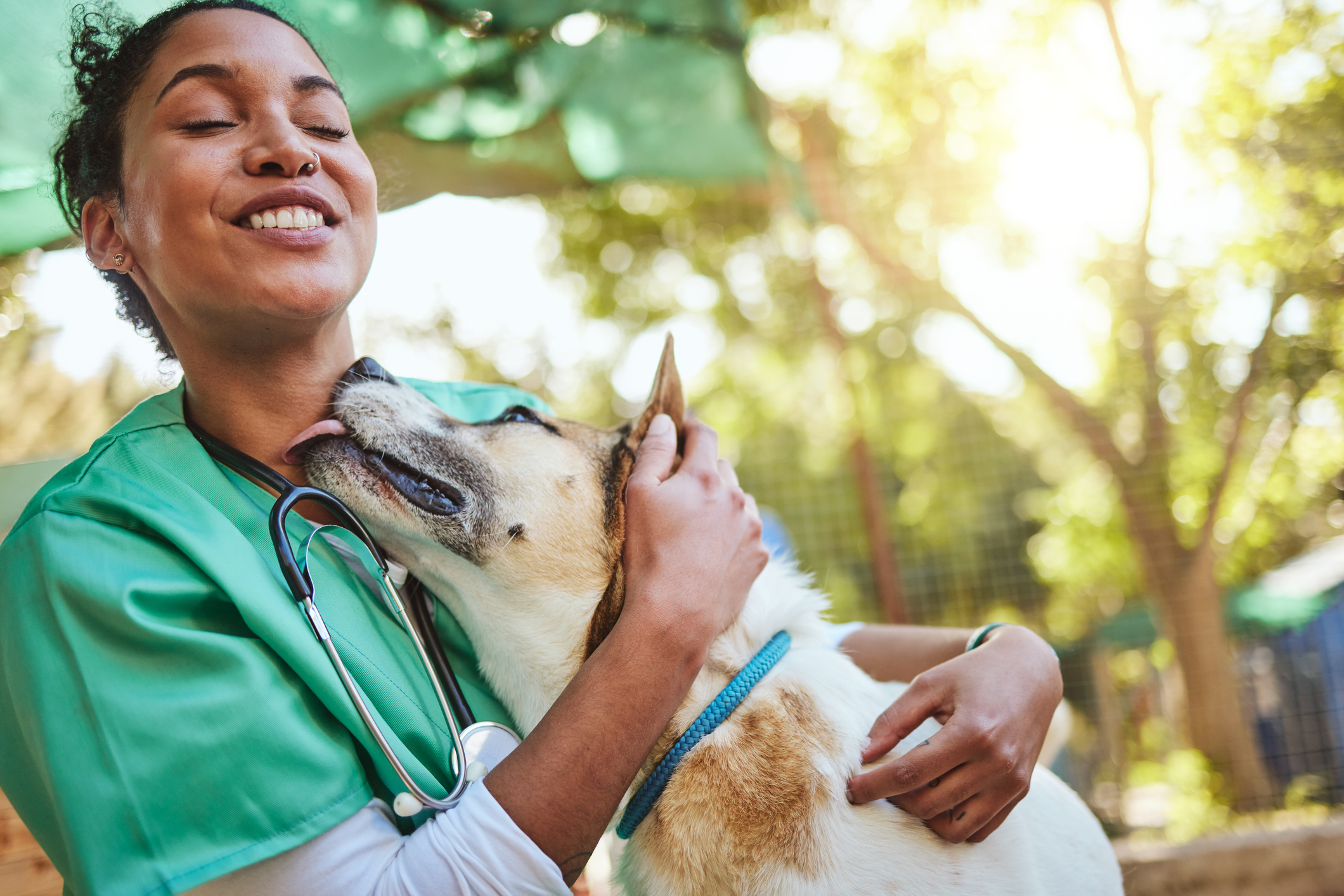Why Visiting a Veterinarian Enterprise Can Guarantee the Long-Term Wellness of Your Pet
Why Visiting a Veterinarian Enterprise Can Guarantee the Long-Term Wellness of Your Pet
Blog Article
Vaccination Standards From Your Trusted Veterinarian
Vaccination guidelines given by your trusted veterinarian play a critical function in protecting your pet's health and wellness and wellness. Core vaccines are basic for all animals, while non-core injections can be tailored to ecological exposures and specific lifestyles. Understanding the subtleties of inoculation schedules, which begin as early as six to eight weeks, is vital for optimal defense. Furthermore, dealing with common misconceptions bordering vaccines can additionally enhance pet dog owners' self-confidence in these safety nets. As we discover these vital facets, it becomes increasingly clear why normal assessments with your vet are essential for informed decision-making.

Importance of Vaccinations
Vaccinations play a pivotal duty in securing pet dogs against a variety of avoidable illness. By promoting the body immune system to acknowledge and combat specific pathogens, vaccinations considerably reduce the occurrence of contagious conditions that can influence a pet dog's health and wellness and long life. Not just do inoculations secure specific pets, yet they also contribute to herd immunity, therefore lowering the overall prevalence of illness in the pet populace.
Timely inoculations help to alleviate the spread of illness such as rabies, parvovirus, and distemper, which can have severe effects for both pets and humans. Inoculations are often a requirement for boarding centers, grooming solutions, and canine parks, making them vital for those that wish to mingle their family pets.

Core Vaccines for Pet Dogs
While the certain vaccination demands of pet dogs can differ based upon specific variables, core injections are globally advised to secure versus one of the most typical and major conditions (Pet Health Checkup). Core injections are those deemed necessary for all family pets, despite their lifestyle or geographical area, as they protect against possibly deadly and extremely infectious diseases
For pets, the core vaccinations include those for canine distemper, parvovirus, adenovirus (liver disease), and rabies. Adenovirus can result in liver condition, while rabies is a zoonotic illness that poses a danger to both people and pets.
In felines, core vaccines encompass feline panleukopenia, feline calicivirus, feline herpesvirus (rhinotracheitis), and rabies. Feline panleukopenia is a highly transmittable viral illness that influences the immune system and intestinal tracts. Calicivirus and herpesvirus are significant contributors to upper respiratory system infections in cats, while rabies continues to be a vital issue for public health and wellness.
Speak with your vet to guarantee your family pets get their core inoculations on timetable.
Non-Core Vaccines Explained
Non-core injections are tailored to resolve certain dangers related to an animal's exposure, way of living, and environment to certain illness. Unlike core vaccinations, which are universally suggested for all animals, non-core vaccines are thought about based upon specific situations. These vaccines are specifically vital for family pets that may run into distinct virus due to their geographical location, traveling routines, or tasks.
Instances of non-core vaccinations include those for Bordetella bronchiseptica, which is linked to kennel coughing, and Lyme illness, brought on by ticks. Animals that often connect with various other animals, such as those in boarding centers, canine parks, or grooming atmospheres, may take advantage of Bordetella inoculation. Likewise, if you reside in a location where Lyme illness is widespread, vaccinating versus this illness can be a sensible choice for outdoor-loving pets.
Various other non-core injections may consist of those for leptospirosis, canine flu, and feline leukemia, depending upon the certain threat variables present. It is essential to have a thorough discussion with your veterinarian about your pet dog's lifestyle and the potential demand for these vaccines, making sure a tailored inoculation method that ideal safeguards your furry buddy.
Vaccination Schedule Introduction

As pet dogs mature, it is very important to stick to the advised booster inoculations. Emergency Vet. For grown-up animals, core vaccinations are normally provided every one to three years, find out here now relying on the particular vaccine and regional laws. Non-core injections might be suggested based on way of living aspects and local condition occurrence, requiring a tailored strategy
Normal vet examinations are critical for updating inoculation schedules. Your veterinarian can provide advice on one of the most ideal immunizations for your pet, considering age, health and wellness standing, and ecological threats. By staying aggressive and notified, animal owners can ensure their hairy buddies obtain prompt and reliable vaccinations, consequently safeguarding their health and health throughout their lives.
Typical Myths Concerning Vaccines
Misunderstandings about pet inoculations can result in confusion and reluctance amongst family pet owners pertaining to the booster shot process. One widespread myth is that vaccines are unneeded for interior pet dogs. While it's true that interior family pets deal with lower threats, they are not completely immune to conditions, as microorganisms can be presented with numerous ways, including human apparel and other pets.
One more mistaken belief is that vaccines can create the diseases they intend to avoid. In truth, a lot of vaccines consist of suspended or attenuated virus, which can not cause illness in healthy animals. Some family pet owners likewise think that their animals ought to not be immunized if they are already healthy; nonetheless, inoculations are an aggressive step that aids avoid the beginning of illness.
In addition, many family pet proprietors fear that vaccines will certainly bring about long-term health and wellness complications. While side effects can happen, they are short-term and usually light. The benefits of vaccination-- safeguarding family pets from potentially life-threatening illness-- much exceed the threats. Recognizing these common myths is important for accountable pet dog ownership and guaranteeing the wellness and safety and security of your furry companions. Always consult your veterinarian for accurate information tailored to your animal's particular requirements.
Verdict
In recap, adherence to vaccination guidelines is important for guaranteeing the health and longevity of pets. Core vaccines provide crucial defense versus severe illness, while non-core injections attend to details dangers based upon individual way of lives. Developing a comprehensive inoculation timetable, in conjunction with regular veterinary check-ups, helps with optimum health and wellness management. Eliminating typical myths bordering vaccinations better reinforces the importance of educated decision-making in animal treatment. Eventually, an aggressive technique to vaccinations is essential for preserving pet dog well-being.
Not only do inoculations shield specific animals, however they additionally contribute to herd immunity, therefore decreasing the general frequency of diseases in the animal populace.
Misconceptions regarding pet dog vaccinations can lead to complication and reluctance among animal owners concerning the immunization procedure. While it's true that interior family pets deal with reduced risks, they are not completely immune to illness, as virus can be introduced through different means, consisting of human apparel and various other pets.
Some family pet owners additionally think that their pets should not be vaccinated if they are already healthy and balanced; nonetheless, inoculations are an aggressive more info here measure that aids avoid the beginning of ailment.
The advantages of inoculation-- safeguarding pet dogs from possibly dangerous webpage illness-- much surpass the risks.
Report this page